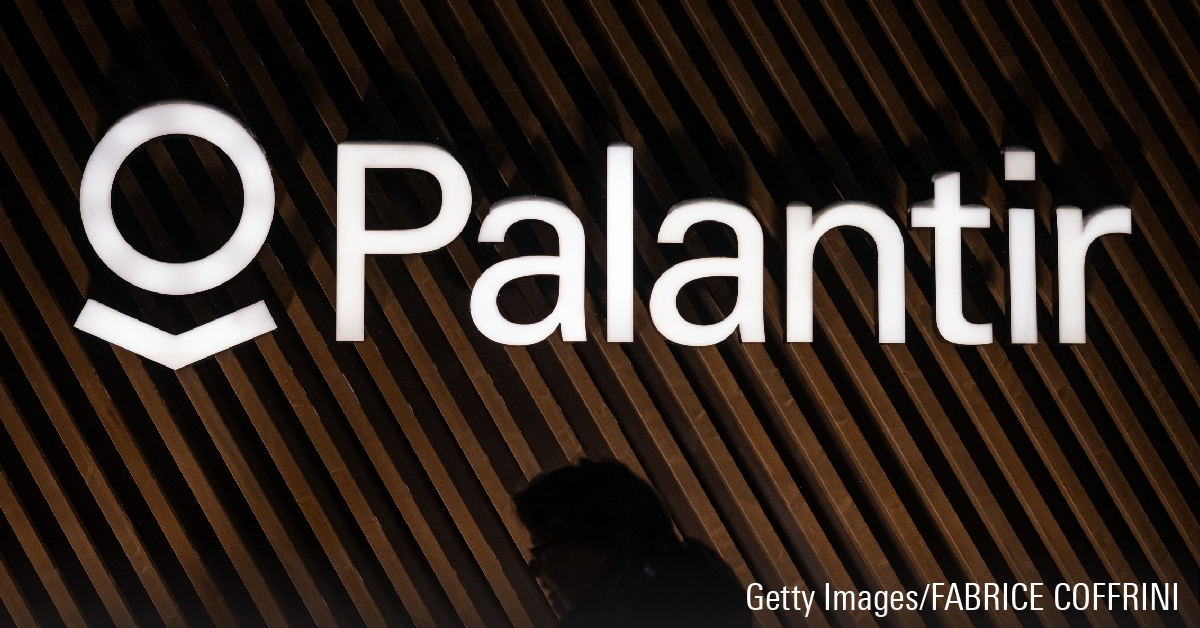Ruth Saldanha: Canadians generally suffer from home country bias. Now, if you don't want to be one of those people and you do want to start buying international stocks, where should you start? Virginia Au is the Head of Global Equity at Leith Wheeler Investment Counsel. She heads up the team that manages a concentrated global equity strategy for private clients, and she is here today to share her three international stock ideas.
Virginia, thank you so much for being here today.
Virginia Au: Thank you. It's great to be here.
Saldanha: Now, your first pick is Global Payments. Tell us a little bit about that company.
Au: Yes. Global Payments is based in the U.S. It is a payment processor company. It helps merchants process any type of payment that a customer would want to use, such as credit card, debit card, Apple Pay or any digital wallets. And recently, the stock has been hit because of two main concerns in the market. One is the market worries that there's so many innovations and new types of payments such as buy now, pay later that will impact Global Payments' market position. And then, the second worry is that because commerce growth has been so strong that you see a lot of the new digitally native payment processors like Stripe, Adyen, PayPal or Square eating into Global Payments' market share. And I think this is very far from the truth. It is actually probably a misunderstanding of Global Payments' business model.
I think on the first point, Global Payments is a payment processor. So, they're kind of agnostic to how you would want to pay the merchant. In fact, the more types of payments makes it more complicated and makes their position more important for the merchant, and it makes it difficult for new players to come in because the complexity in technology has just increased. So, more payment is actually great for them. Second point on ecommerce. There is some truth to it. Ecommerce has been very strong, especially through the pandemic. But the thing is, there's a lot of merchants that have both online and physical presence, and they need someone who can offer a global full-service, high-volume payment systems that are not only good for online but also have on the ground services. And frankly, a lot of these online or digitally native payment systems just don't have that on the ground presence. So, that is a direct advantage for Global Payments compared to the newer entrants. And so, in our view, Global Payments is attractive because you're looking at a 15% compounder trading at about 13 times free cash flow. And it is times like these where a bottom-up investor who do extensive research can take advantage of these market mispricings.
Saldanha: Now, the second one that you like is Hays, a recruitment company. Is it because of the great resignation? Is that's why you like this company?
Au: Partly. And there's also a lot of structural trends going on in that area. Like you said, Hays is probably a name that not a lot of people have heard of, but they are the largest professional temporary labour company in Europe. They are actually number one in Germany in providing temporary labour, and that's really important, especially in IT area that is going through a digital transformation. Because in IT they tend to be very project-driven. So, the temporary labour is actually more attractive than full-time labour. And so, for Hays, in Germany, two-thirds of their revenue comes from IT and engineering, which is an area of secular growth. And another secular growth for them is Germany is looking to employ more temporary labour, so regulation is loosening in that area, and again, we see Germany as a very good structural growth in the long term. And like you said, the war for talent and the great resignation, the tough, basically, wage increase is just icing on the cake in the longer term for them.
So, I think there's a lot of good things going on. And the company is – from a valuation perspective, the company is trading at about 6% free cash flow yield when you look at more recovery in the works. And so, I think that's definitely very attractive. And I think for us, we are long-term investors. So, it's great to be able to focus on some of these longer-term trends and not to be just dependent on the shorter-term, harder-to-predict macro ebbs and flow.
Saldanha: Now, the last one that you like is perhaps the best-known, AstraZeneca. One of the criticisms in a manner of speaking that you may have heard is that a lot of the growth in these names has already been priced in. Is that the case with AstraZeneca? Why do you like this stock?
Au: Yeah, it is. Definitely, AstraZeneca is not a cheap name. It's trading at 18 times. But we think there is a great profile of growth and EPS and revenue growth, and also, the risk profile is relatively lower than the other companies in that sector. So, AstraZeneca is a global pharmaceutical company based in the U.K. They have a terrific oncology portfolio. Even though they're most – probably right now more known for their COVID vaccine, and they also have very high exposure in emerging markets because of the treatment that they offer. And so, there's a lot of – a couple of different ways they're growing in the next five-plus years.
So, first, they're growing in just expanding label, just expanding usage key on some of their existing already approved drugs, and they're also growing in higher penetration – in the geographic footprint in the countries they're already in, and this is actually a great way to grow because it really lowers the risk of research, development. You're just expanding drugs that already have a good safety profile. So, that is attractive in pharmaceutical companies. Another reason we like them is that their patent expiration. It's very low. They don't have any major drugs that will go off patent in the next five-plus years and that is attractive. Because when a drug goes off-patent, prices can go down more than 60%, which is very meaningful. And a lot of pharmaceutical companies in the sector are experiencing that issue, having their drug expire in the next five years, and I think that's why it's reflected in actually the lower multiple. For Astra Zeneca, they don't have that risk. So, you expect to pay a slightly higher price for the company.
And lastly, I mentioned exposure in emerging markets to encourage faster growth. Their proportion of sales in China is 3 to 4 times that of the average pharmaceutical company. So, they are going to see higher growth in the next five-plus years and that is very attractive. So, when you take all that into consideration even though they trade at 18 times P/E, which is not the cheapest in the industry when you think about the number one, the highest growth they offer in the industry when you think about the patent, the actual drug profile they offer, oncology is a more, very defensible, no alternative treatment type of drug, so that again, lower that risk in terms of competition. That makes the whole company very attractive. And so, for us, this is a very good example of – we don't look for just the cheapest company in any sector or in the market. We really do our deep research to look under the hood to see what we're buying, to see the quality of the company, because we don't want to end up buying a lemon.
Saldanha: Yeah, absolutely. Thank you so much for joining us today, Virginia.
Au: Thank you.
Saldanha: For Morningstar, I'm Ruth Saldanha.

















